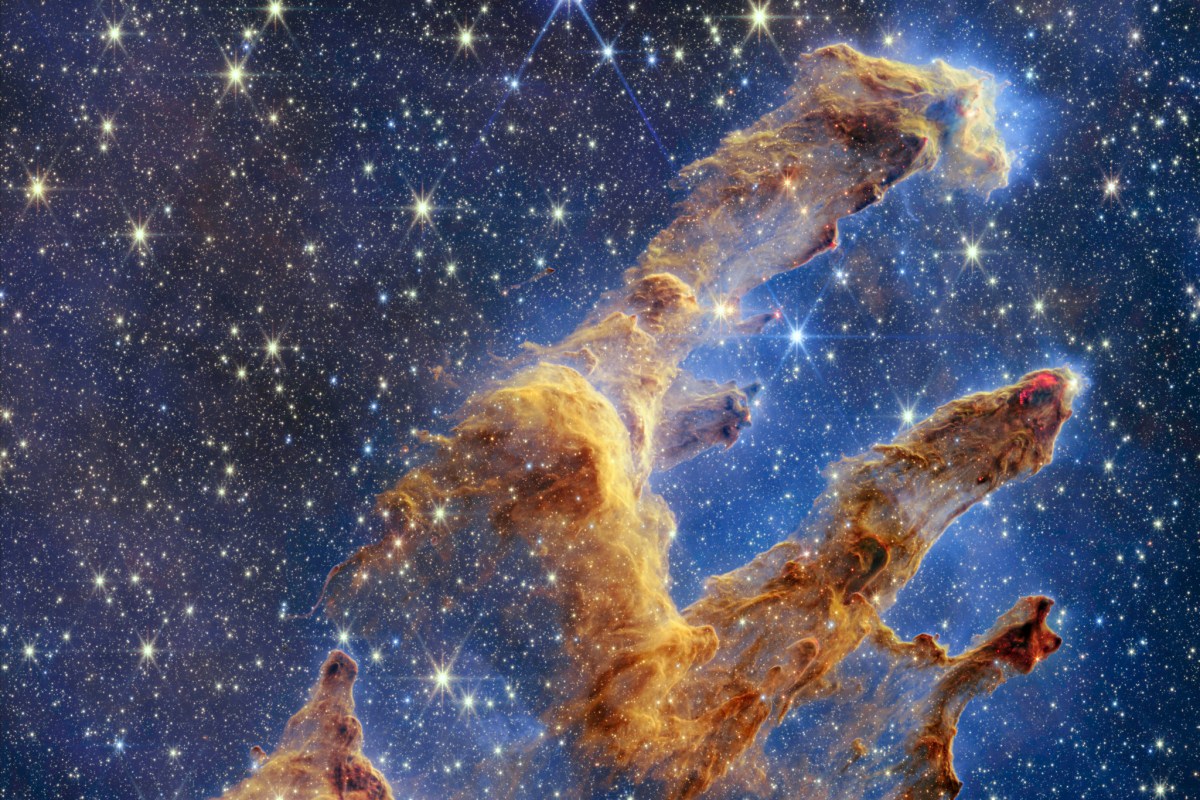The Bible reveals divine patterns that are reflected in creation as well as all throughout scripture. Symbolic elements in Creation can be seen in the biblical feasts, prophetic history, as well as pointing to and prophesying details of the coming of Messiah, the Son of God.
Day 1, light/dark, sin/death,
Dispensation: Adam.
Exodus: Plagues of Egypt
Tabernacle: Altar of Sacrifice
Ministry: Temptation of Christ
Passion: Christ enters Jerisalem
Gospel: Faith and Resurrection
Feast: Passover (Pesach)
7 Churches: Ephesus, Adam, Apostolic Church, Labor, Secret Combinations, Tree in Paradise
1 Nephi: Feast of Trumpets, Zedekiah is King. Lehi is Shofar, 9 Prophets in Israel.
Book of Mormon: Vision of Tree of Life
Restoration: First Vision
Genesis: Adam has dominion in garden
Day 2, sky/water, flood.
Dispensation: Noah,
Exodus: Isrsel passes through Red Sea
Tabernacle: Bronze Laver
Ministry: Christ changes water to wine
Passion: Christ purifies the temple and curses the fig tree.
Gospel: Repentance and Atonement
Feast: Unleavened Bread
7 Churches: Smyrna, Enoch. Martyr Church, 10 week calender.
1 Nephi: Yom Kippur, Casting Lots. Laman cast out, Nephi (high priest) kills Laban (white one)
Book of Mormon: Crossing the Ocean
Restoration: Joseph Smith killed, Brigham Young flees into wilderness
Genesis: Cain slays Abel and is cast out. Noah and thr Flood leaves Promised Land to Middle East.
Day 3, water/land, plants/seed, covenant.
Dispensation: Abraham
Exodus: manna given
Tabernacle: Table of Showbread
Ministry: Christ gives the Sermon on the Mount
Passion: Christ teaches the Parable of the Tenants and the Olivet Discourse
Gospel: Baptism, Obedience and Knowledge
Feast: Fistfruits
7 Churches: Pergamon, Compromising Church, Moses, Balaam, manna.
1 Nephi: Sukkot, Nephi marries, dwell in tents, vision of tree of life: stick (lulav) and fruit (citron), spacious building (sukka)
Book of Mormon: King Benjamin's Sermon.
Restoration: Church planted in Utah
Genesis: New Covenant, Joseph in Egypt
Day 4, sun, moon, stars appear, scripture, Dispensation: Moses.
Exodus: Israel given 10 Commandments
Tabernacle: Golden Lampstand (menorah)
Ministry: Christ heals the sick, blind and deaf.
Passion: Christ is anointed at Bethany.
Gospel: Gift of Holy Ghost, Sacrifice and Increase
Feast: Pentacost
7 Churches: Thyatira, Catholic Church, rod of iron, star.
1 Nephi: Shemini Atzeret, Liahona given, broken Bow, righteousness, God provides rain.
Book of Mormon: Abinadi's Testimony
Restoration: LDS Church spreads
Genesis: Abraham teaches Phaoroh to interpret stars, Joseph interprets dream.
Day 5, fish/birds. Disciples spread gospel and bestow the Holy Ghost.
Dispensation: Peter
Exodus: Israel given the Tabernacle
Tabernacle: Insense Altar
Ministry: Christ multiplies the loaves and fishes
Passion: Christ celebrates the Last Supper, washes feet, suffers at Gethsemane
Gospel: Initiatory, Gospel and Second Conforter
Feast: Trumpets
7 Churches: Sardis, Reformation Church, white reinment,
1 Nephi: Passover, judgement by water, Nephi in bondage, yizkor.
Book of Mormon: Alma Organizes Church of Christ.
Restoration: Gathering of Israel
Genesis: Joseph gathers wheat.
Day 6, Man created from dust, apostasy and restoration,
Dispensation: Joseph Smith.
Exodus: Isreal wanders 40 years in desert.
Tabernacle: Veil of the Temple
Ministry: Christ raised Lazarus
Passion: Christ is tried, crucified and dies
Gospel: Endowment, Chastity and Divine Presence
Feast: Day of Atonement (Yom Kippur)
7 Churches: Philadelphia, Revival Church, Peter, key of David
1 Nephi: Firstfruits, plants seed in Promised Land.
Book of Mormon: Rise of Gadianton Robbers
Restoration: Tribulation
Genesis: Famine in Israel
Day 7, God rests, All enemies subdued.
Dispensation: Jesus Christ
Exodus: Isreal enters promised land.
Tabernacle: Ark of the Covenant
Ministry: Christ triumphantly enters Jerusalem and clenses temple.
Passion: Christ rests, preaches to the world of spirits
Gospel: Sealing, Consecration and Deification
Feast: Tabernacles (Sukkot)
7 Churches: Laodiceans, Joseph Smith, Worldly Church, rich and need nothing, lukewarm
1 Nephi: Shavuot, Pentecost, Nephi is listing and counting. gathering of Israel.
Book of Mormon: Appearance of Jesus Christ in America
Restoration: Adam-ondi-Ahman
Genesis: Israel rests in Egypt
Day 8,
Passion: Christ's resurrection, Olam HaBa
Judgements in Revelation can be seen as a kind of anti-creation. There may be a pattern that follows the curse of the earth, sea, rivers, sun, locusts, and air. The Fall of Rome is an example. First, Rome was invaded by Alaric and the Goths by land. Second, Rome was invaded by Geiseric and the Vandals by sea. Third, Rome was invaded by Attila the Hun who followed the rivers. Fourth, Rome was divided from within by Odoacer and the Barbarian Foeterati. Fifth, Roman cities were overrun by Arab Muslims like locusts (arbeh and locust share a common Hebrew root). Sixth, Constantinople was finally conquered in 1453 by the Ottoman Turks which moved their caliphate to Iraq and controlled the Euphrates river. Seventh, the curse of the air with the Thirty Years War and Treaty of Westphalia in 1648 and then the Battle of the Third Coalition and the Treaty of Pressburg in 1805 marking the final end to the Holy Roman Empire.
10 Plagues of Egypt are also an anti-creation. God speaks 10 times over 7 days.
1. Water to Blood, Pharoah sin killing male babies of Israel. Water to Egypt was like light to creation.
2,3.4 Frogs, Lice, Flies = water, earth air = undo separation of water and land as frogs inhabit both. Flies from the dust decreate man created from the dust. Flies multiply and fill the earth.
5,6 pestilence and boils = illness and uncleaned. decreate animals
7, 8 hail and locusts decreate grass, trees, and vegetation
9 Darkness the can be felt decreates light
10 Death of firstborn decreates man created in image of God.




